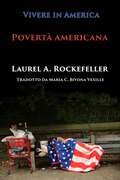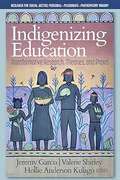Résultats de recherche de titre
Articles 1 à 6 sur 6

A Just and Generous Nation: Abraham Lincoln and the Fight for American Opportunity
Par Harold Holzer, Norton Garfinkle. 2015
In A Just and Generous Nation, the eminent historian Harold Holzer and the noted economist Norton Garfinkle present a groundbreaking…
new account of the beliefs that inspired our sixteenth president to go to war when the Southern states seceded from the Union. Rather than a commitment to eradicating slavery or a defense of the Union, they argue, Lincoln’s guiding principle was the defense of equal economic opportunity. Lincoln firmly believed that the government’s primary role was to ensure that all Americans had the opportunity to better their station in life. As president, he worked tirelessly to enshrine this ideal within the federal government. He funded railroads and canals, supported education, and, most importantly, issued the Emancipation Proclamation, which opened the door for former slaves to join white Americans in striving for self-improvement. In our own age of unprecedented inequality, A Just and Generous Nation reestablishes Lincoln’s legacy as the protector not just of personal freedom but of the American dream itself.
Washington: A History of Our National City
Par Tom Lewis. 2015
On January 24, 1791, President George Washington chose the site for the young nation’s capital: ten miles square, it stretched…
from the highest point of navigation on the Potomac River, and encompassed the ports of Georgetown and Alexandria. From the moment the federal government moved to the District of Columbia in December 1800, Washington has been central to American identity and life. Shaped by politics and intrigue, poverty and largess, contradictions and compromises, Washington has been, from its beginnings, the stage on which our national dramas have played out. In Washington, the historian Tom Lewis paints a sweeping portrait of the capital city whose internal conflicts and promise have mirrored those of America writ large. Breathing life into the men and women who struggled to help the city realize its full potential, he introduces us to the mercurial French artist who created an ornate plan for the city “en grande”; members of the nearly forgotten anti-Catholic political party who halted construction of the Washington monument for a quarter century; and the cadre of congressmen who maintained segregation and blocked the city’s progress for decades. In the twentieth century Washington’s Mall and streets would witness a Ku Klux Klan march, the violent end to the encampment of World War I “Bonus Army” veterans, the 1963 March on Washington for Jobs and Freedom, and the painful rebuilding of the city in the wake of Martin Luther King, Jr. ’s assassination. “It is our national center,” Frederick Douglass once said of Washington, DC; “it belongs to us, and whether it is mean or majestic, whether arrayed in glory or covered in shame, we cannot but share its character and its destiny. ” Interweaving the story of the city’s physical transformation with a nuanced account of its political, economic, and social evolution, Lewis tells the powerful history of Washington, DC—the site of our nation’s highest ideals and some of our deepest failures.
Savage Journey: Hunter S. Thompson and the Weird Road to Gonzo
Par Peter Richardson. 2022
A superbly crafted study of Hunter S. Thompson’s literary formation, achievement, and continuing relevance. Savage Journey is a "supremely crafted"…
study of Hunter S. Thompson's literary formation and achievement. Focusing on Thompson's influences, development, and unique model of authorship, Savage Journey argues that his literary formation was largely a San Francisco story. During the 1960s, Thompson rode with the Hell's Angels, explored the San Francisco counterculture, and met talented editors who shared his dissatisfaction with mainstream journalism. Author Peter Richardson traces Thompson's transition during this time from New Journalist to cofounder of Gonzo journalism. He also endorses Thompson's later claim that he was one of the best writers using the English language as both a musical instrument and a political weapon. Although Thompson's political commentary was often hyperbolic, Richardson shows that much of it was also prophetic. Fifty years after the publication of Fear and Loathing in Las Vegas, and more than a decade after his death, Thompson's celebrity continues to obscure his literary achievement. This book refocuses our understanding of that achievement by mapping Thompson's influences, probing the development of his signature style, and tracing the reception of his major works. It concludes that Thompson was not only a gifted journalist, satirist, and media critic, but also the most distinctive American voice in the second half of the twentieth century.
La società patriarcale americana (Vivere in America #3)
Par Laurel A. Rockefeller. 2022
L’esperienza americana dal punto di vista delle donne. La società patriarcale americana descrive cosa significa vivere in America per le…
donne. Sette tematiche relative al patriarcato in America vengono successivamente approfondite nella seconda parte del libro. •Le tematiche affrontate sono: •Il patriarcato nel mondo del lavoro •La padrona di casa come l’ideale della donna americana •La società patriarcale e l’istruzione •Il mansplaining •Violenza domestica e cultura dello stupro •Società patriarcale e denaro •Società patriarcale e aborto Un’indagine onesta della storia e cultura americana per come è stata e viene vissuta dalle donne che sicuramente farà riflettere parecchio e fornirà svariati ed interessanti spunti di discussione.
Povertà americana (Vivere in America #2)
Par Laurel A. Rockefeller. 2014
In questa provocatoria analisi storica ed economica, Laurel A. Rockefeller affronta il tema della povertà, spiegando cosa significhi essere poveri…
negli Stati Uniti e confrontando quest’esperienza con le modalità attraverso cui gli alleati economicamente più evoluti e più stretti dell’America (Canada, Germania, Francia e Regno Unito) si prendono cura dei loro poveri. Dalle condizioni degli alloggi popolari, alla fame ed alla psicologia dei poveri, la Rockefeller va dritta al nocciolo della questione e provvede efficaci soluzioni a tutti i suoi lettori, soluzioni che dovrebbero essere abbracciate da ogni fascia sociale per assicurare il futuro dell’America e garantire un’America sicura ai nostri posteri. Parte prima: saggi che esplorano cinque aspetti della povertà in America: mancanza d’empatia, condiscendenza verso la povertà, derisione dei poveri, alloggi popolari e cultura dello stupro. Parte seconda: analisi che fornisce soluzioni su come affrontare i precedenti aspetti della povertà, al di là dei limiti d'età. Parte terza: uno sguardo della situazione dei poveri e le politiche in atto per fronteggiare il problema in Germania, Francia, Canada e Regno Unito. Analisi comparativa con questi alleati degli USA e l’impatto della povertà sulle politiche estere e la sicurezza nazionale. Le fonti sono tratte da: American Express, Forbes, CNN Money, The New York Times, Feeding America, The Shriver Report, Herald Scotland, BBC News, The Joseph Roundtree Foundation, The Huffington Post, e The Toronto Star.
Indigenizing Education: Transformative Research, Theories, And Praxis
Par Jeremy Garcia, Valerie Shirley, Hollie Anderson Kulago. 2022
Indigenizing Education: Transformative Research, Theories, and Praxis brings various scholars, educators, and community voices together in ways that reimagines and…
recenters learning processes that embody Indigenous education rooted in critical Indigenous theories and pedagogies. The contributing scholar-educators speak to the resilience and strength embedded in Indigenous knowledges and highlight the intersection between research, theories, and praxis in Indigenous education. Each of the contributors share ways they engaged in transformative praxis by activating a critical Indigenous consciousness with diverse Indigenous youth, educators, families, and community members. The authors provide pathways to reconceptualize and sustain goals to activate agency, social change, and advocacy with and for Indigenous peoples as they enact sovereignty, selfeducation, and Native nation-building. The chapters are organized across four sections, entitled Indigenizing Curriculum and Pedagogy, Revitalizing and Sustaining Indigenous Languages, Engaging Families and Communities in Indigenous Education, and Indigenizing Teaching and Teacher Education. Across the chapters, you will observe dialogues between the scholar-educators as they enacted various theories, shared stories, indigenized various curriculum and teaching practices, and reflected on the process of engaging in critical dialogues that generates a (re)new(ed) spirit of hope and commitment to intellectual and spiritual sovereignty. The book makes significant contributions to the fields of critical Indigenous studies, critical and culturally sustaining pedagogy, and decolonization.